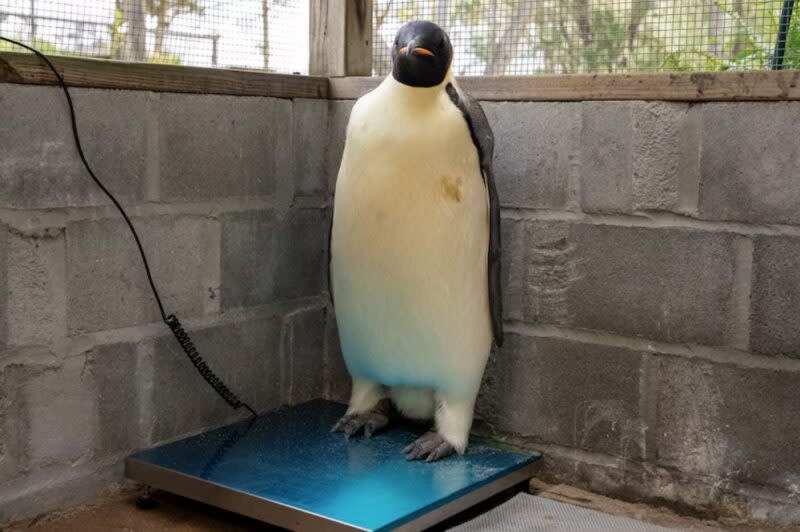Beachgoers in Denmark, Australia, were shocked to see a lone emperor penguin waddling out of the ocean last week. This species, the world’s biggest penguin, lives only in Antarctica. This is the farthest north one has ever appeared.
Nicknamed Gus, the penguin swam 3,400km from its icy home to Western Australia. Aaron Fowler was on the beach when it came ashore and described the scene.
“It was massive, way bigger than a seabird, and we are like, what is that thing coming out of the water?” he told ABC News. “And it kind of had a tail sticking out like a duck. It stood up in the waves and just waddled straight up to us…He was probably about a meter high, and he was not shy at all.”
Providing entertainment for those around him, Gus then attempted a belly slide, as penguins do on ice, only to end up with a face full of sand. Unperturbed, he stood up and shook the sand off before continuing his exploration of the beach.

Carol Biddulp, a bird caregiver with the Department of Biodiversity, Conservation, and Attractions, is now looking after the malnourished migrant. She admits she never expected to be caring for a lost emperor penguin.
Skinny after long swim
Gus was underweight to the point that his bones were visible. Given his poor condition and the hubbub that would have occurred if this unique attraction had stayed on the beach, Biddulp brought the bird in.
This was not as easy as it sounds. Even in his malnourished state, Gus weighed 23 kilograms. “Getting him back to the car was quite a challenge,” she explained. “We got him into a carrier, a large canvas pet carrier, nice and soft, into the car and home.”
Why the penguin made the epic journey across the Southern Ocean is a mystery. Researchers think he may have followed a current to Australia.
“What they tend to do is follow certain currents where they’re going to find lots of different types of food,” said Belinda Cannell, a research fellow at the University of Western Australia.
EMEA Tribune is not involved in this news article, it is taken from our partners and or from the News Agencies. Copyright and Credit go to the News Agencies, email news@emeatribune.com Follow our WhatsApp verified Channel




